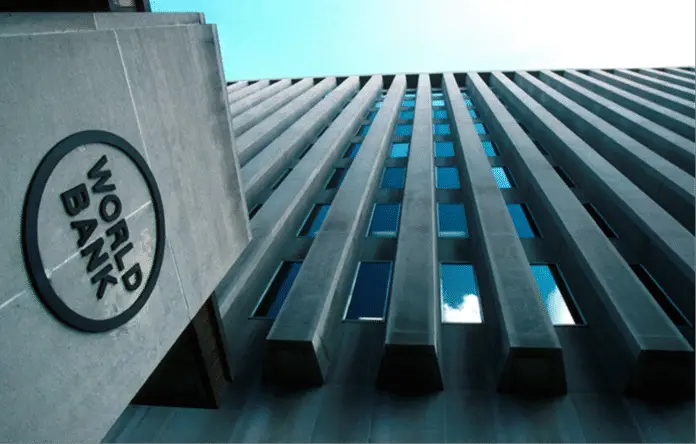Staff Reporter
The chief economist of the World Bank, Indermit Gill, is sounding the alarm on rising debt levels and sluggish growth in emerging markets and developing countries, emphasizing that reducing their own tariffs could provide a significant boost.
Gill noted that global economists are quickly revising their growth forecasts downward, especially for advanced economies, while slightly less so for developing nations—at least for now—following the tariffs announced by former U.S. President Donald Trump.
At this week’s International Monetary Fund (IMF) and World Bank meetings in Washington, concerns about the economic impact of record-high U.S. tariffs and retaliatory measures from China, the European Union, Canada, and others have taken center stage.
On Tuesday, the IMF revised its economic projections for the U.S., China, and many other nations downward and cautioned that ongoing trade tensions would further hinder growth. It now forecasts global growth of 2.8% for 2025, half a percentage point lower than previously expected.
While the World Bank will release its own forecasts in June, Gill indicated that a consensus among global economists shows significant downgrades in growth and trade expectations. Uncertainty indices have surged following Trump’s tariff announcements, reaching levels not seen in over a decade.
Gill pointed out that the current economic shock stems from government policy, setting it apart from previous crises like the 2008-2009 financial meltdown and the COVID-19 pandemic. This gives policymakers a chance to reverse the trend.
He warned that the ongoing crisis would further suppress growth in emerging markets, which have already seen a steady decline from growth rates around 6% two decades ago. Global trade is now projected to grow by just 1.5%, a stark contrast to the 8% growth experienced in the 2000s.
“It’s a sudden slowdown on top of an already challenging situation,” Gill stated, highlighting a decline in portfolio flows and foreign direct investment (FDI) to emerging markets—trends reminiscent of earlier economic downturns.
Gill explained that FDI, which constituted 5% of GDP in emerging markets during better times, has now dropped to just 1%, with both portfolio and FDI flows decreasing overall.
Urgent Need for Trade Negotiations
With high debt levels, Gill revealed that nearly half of around 150 developing countries and emerging markets are either unable to meet debt service payments or at risk of falling behind, a rate that has doubled since 2024.
If global growth continues to slow and interest rates remain high, many countries— including commodity exporters—could face severe debt distress.
He noted that net interest payments as a share of GDP for emerging markets have risen to 12%, up from 7% in 2014, returning to levels last seen in the 1990s.
For poorer countries, the situation is even more dire, with debt servicing costs now consuming 20% of GDP, compared to 10% a decade ago. This financial strain means less funding for vital sectors like education and healthcare.
Gill warned that with interest rates expected to remain elevated due to rising inflation, countries may find their debt burdens growing even heavier if they need to refinance existing obligations.

